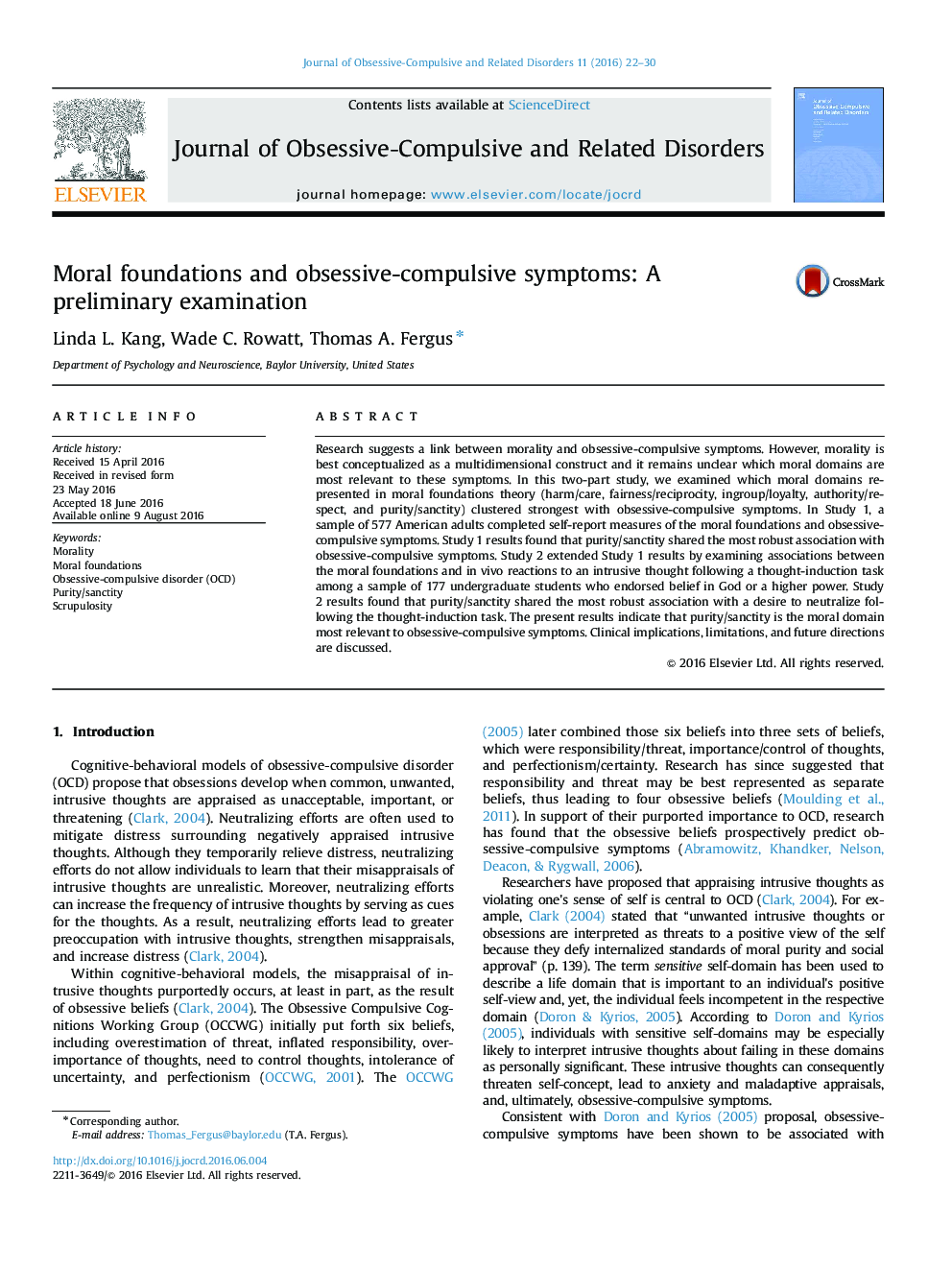| Article ID | Journal | Published Year | Pages | File Type |
|---|---|---|---|---|
| 912162 | Journal of Obsessive-Compulsive and Related Disorders | 2016 | 9 Pages |
•Examined how moral domains relate to obsessive-compulsive symptoms in Study 1.•Purity/sanctity was most strongly related to those symptoms in Study 1.•Examined how moral domains relate to reactions to in vivo thought task in Study 2.•Purity/sanctity was most strongly related to those reactions in Study 2.•Purity/sanctity is the moral domain most relevant to obsessive-compulsive symptoms.
Research suggests a link between morality and obsessive-compulsive symptoms. However, morality is best conceptualized as a multidimensional construct and it remains unclear which moral domains are most relevant to these symptoms. In this two-part study, we examined which moral domains represented in moral foundations theory (harm/care, fairness/reciprocity, ingroup/loyalty, authority/respect, and purity/sanctity) clustered strongest with obsessive-compulsive symptoms. In Study 1, a sample of 577 American adults completed self-report measures of the moral foundations and obsessive-compulsive symptoms. Study 1 results found that purity/sanctity shared the most robust association with obsessive-compulsive symptoms. Study 2 extended Study 1 results by examining associations between the moral foundations and in vivo reactions to an intrusive thought following a thought-induction task among a sample of 177 undergraduate students who endorsed belief in God or a higher power. Study 2 results found that purity/sanctity shared the most robust association with a desire to neutralize following the thought-induction task. The present results indicate that purity/sanctity is the moral domain most relevant to obsessive-compulsive symptoms. Clinical implications, limitations, and future directions are discussed.
